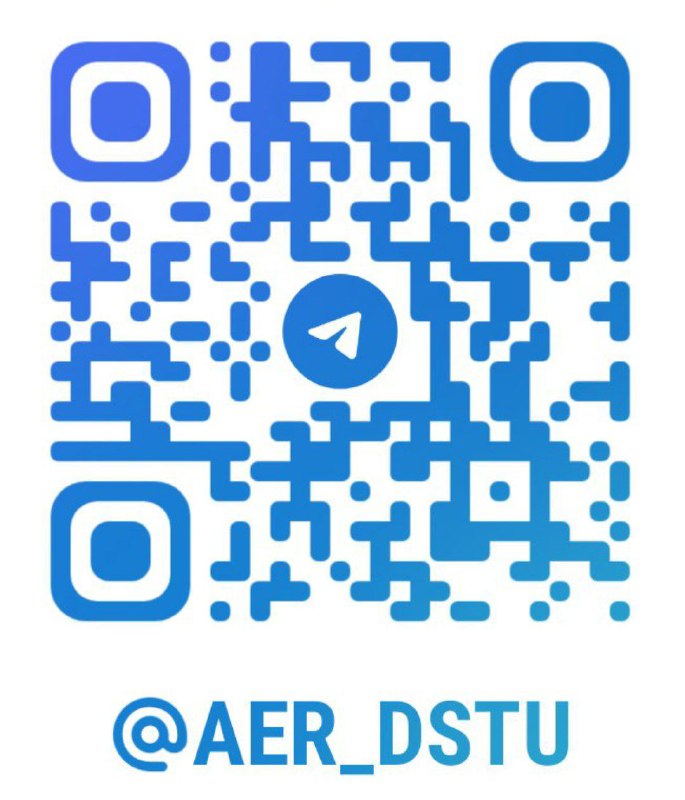Synthesis of evasive maneuver control of unmanned aerial vehicle for terminal restrictions
https://doi.org/10.23947/1992-5980-2018-18-2-190-200
Abstract
Introduction. The solution to the problem of development of suboptimal evasive strategy of unmanned aerial vehicle (UAV) under the conditions of uncertainty of the current motion characteristics, and the future behavior strategy of the interdictor is considered. The FV (flying vehicle) control is organized with maximum efficiency. Herewith, the maneuvering FV trajectory must satisfy the requirements of optimality for some given functions of the phase variables at the final time and the conditions of its path through a specified terminal area space. The initial conditions and the dynamic facilities of the evading and opposing FV at the initial time are assumed to be known. The evading FV control is developed by its onboard guidance and navigation system in real time on nonlinear position feedback control. The work objective is to build an algorithm for solving the problem of synthesis of terminal optimal control of motion of center of mass of highspeed UAV that allows searching for the optimal control in function of the current coordinates of the object. Consideration of the problem in this formulation distinguishes it from the classical conflict tasks on the prosecution to be solved with the involvement of the theory of differential games, and demands computationally efficient solution methods.
Materials and Methods. For the UAV operating under the conditions of violent disturbances, the most effective hard constraints on the phase variables and control are the so-called methods of optimal terminal control that implement adaptive algorithms with projection. Therefore, the solution to the formulated problem can be obtained precisely with the use of their ideology.
Research Results. A new method of piecewise-software terminal control of the UAV motion is developed. It differs from the known ones in that it is based on the procedure of searching a control strategy upon the best guaranteed result with the terminal restrictions. A methodology for calculating the management strategy for the FV evasive maneuver in a slow loop of the terminal control system is worked out. It is characterized in that instead of the forecast procedure in speed-up time and calculation of residuals, the conversion of a boundary value problem to a one-point task of integration of the ordinary differential equations system with account for the occurrence of non-zero terminal member in the cost functional, is used.
Discussion and Conclusions. Despite the fact that the development of a suboptimal guidance strategy in the terminal area of the evading FV is not in the form of synthesis, the control software adapts to the current conditions. This is achieved through the iterative procedures of regular recalculation of terminal conditions that are equivalent to the periodic circuit feedback. Thus, the evading FV is brought to a specified terminal area through software, while evading an interdictor is developed as synthesis. Limitations to the method are the terms that the movement model of the opposing FV is known, and it forms a natural control of the evader intercept.
About the Authors
N. Y. PolovinchukRussian Federation
Polovinchuk, Nikolay Y., Cand.Sci. (Eng.), associate professor of the Airborne Electrical Systems and Navigation Instrumentation Department
344009, Rostov-on-Don, Sholokhov pr., 262c
S. V. Ivanov
Russian Federation
Ivanov, Stanislav V., Cand.Sci. (Eng.), associate professor of the Production Automation Department
344000, Rostov-on-Don, Gagarin Square, 1
L. I. Kotelnitskaya
Russian Federation
Kotelnitskaya, Lubov I., Cand.Sci. (Eng.), associate professor of the Mathematics Department,
344000, Rostov-on-Don, Gagarin Square, 1
References
1. Krasovskiy, N.N., Subbotin, A.I. Pozitsionnye differentsial'nye igry. [Positional differential games.] Moscow: Nauka, 1974, 254 p. (in Russian).
2. Shcherban, I.V., Ivanov, S.V. Metodika sinteza upravleniya manevrom ukloneniya igroka uklonyayushchegosya LA v medlennom konture terminal'noy sistemy upravleniya. [Control synthesis technique of an evasive player's evasive maneuver in slow loop of terminal control system.] Dvoynye tekhnologii, 2010, no.1, pp. 59–64 (in Russian).
3. Athans, M., Falb, P. Optimal'noe upravlenie. [Optimal control.] Moscow: Mashinostroenie, 1968, 764 p. (in Russian).
4. Fedorov, V.V. Chislennye metody maksimina. [Numerical methods of maximin.] Moscow: Nauka, 1979, 278 p. (in Russian).
5. Krasovskiy, N.N. Igrovye zadachi o vstreche dvizheniy. [Game problems on meeting of movements.] Moscow: Nauka,1970, 420 p. (in Russian).
6. Pontryagin, L.S. Izbrannye nauchnye trudy. T.2. Differentsial'nye uravneniya. Teoriya operatorov. Optimal'noe upravlenie. Differentsial'nye igry. [Research selecta. V.2. Differential equations. Theory of operators. Optimal control. Differential games.] Moscow: Nauka, 1988, 575 p. (in Russian).
7. Sokolov, S.V., Shcherban, I.V. Reshenie zadachi sinteza optimal'nogo upravleniya v konfliktnoy zadache. [An approach to optimal synthesisin a conflict problem.] Journal of Computer and Systems Sciences International, 2003, no. 5, pp. 35–40 (in Russian).
8. Shcherban I.V. An efficient suboptimal algorithm for player-ally control in a conflict problem. Journal of Computer and Systems Sciences International, 2007, vol. 46, no. 1, pp. 3-8.
9. Barkov, V.V., Kochetkov, Y.A. Kraevaya zadacha optimal'nogo upravleniya nelineynymi determinirovannymi sistemami. [Boundary value problem of optimal control of non-linear deterministic systems.] Journal of Computer and Systems Sciences International, 1995, no. 6, pp. 184–193 (in Russian).
10. Baratova, E.D., Tarakanov, A.F. Metod shtrafov i neobkhodimye usloviya optimal'nosti v differentsial'noy ierarkhicheskoy igre pri neopredelennosti. [Penalty function method and necessary conditions of optimality in a differential hierarchical game under uncertainty.] Journal of Computer and Systems Sciences International, 2003, no. 3, pp. 30–36 (in Russian).
11. Sokolov, S.V., Shcherban I.V. Optimal'noe upravlenie spuskom kosmicheskogo apparata v vozmushchennoy atmosphere. [Optimal control of descent of a spacecraft in perturbed atmosphere.] Journal of Computer and Systems Sciences International,1999, no. 1, pp.138–143 (in Russian).
12. Pervachev, S.V., Perov, A.I. Adaptivnaya fil'tratsiya soobshcheniy. [Adaptive message filtering.] Moscow: Radio i svyaz', 1991, 160 p. (in Russian).
13. Bukov, V.N. Adaptivnye prognoziruyushchie sistemy upravleniya poletom. [Adaptive Predictive Flight Control Systems.] Moscow: Nauka, 1987, 230 p. (in Russian).
14. Polovinchuk, N.Y., Shcherban I.V. Metody i algoritmy terminal'nogo upravleniya dvizheniem letatel'nykh apparatov: monografiya. [Methods and algorithms for terminal control of aircraft movement: monograph.]. Moscow: MO RF, 2004, 290 p. (in Russian).
15. Polovinchuk, N.Y. Terminal'noe navedenie ballisticheskikh letatel'nykh apparatov: monografiya. [Terminal guidance of ballistic aircraft: monograph.] Moscow: MO RF, 2004, 138 p. (in Russian).
16. Polovinchuk, N.Y., Ardashov, A.A. Proektirovanie sistem upravleniya raket-nositeley i mezhkontinental'nykh ballisticheskikh raket. [Design of control systems for launch vehicles and intercontinental ballistic missiles.] Rostov-on-Don: RVIRV, 2010, 242 p. (in Russian).
17. Polovinchuk, N.Y., Ivanov. S.V. Sintez algoritma terminal'no-optimal'nogo upravleniya vysokoskorostnym manevriruyushchim letatel'nym apparatom. [Synthesis algorithms terminal-optimal control highspeed maneuvering the aircraft.] Dvoynye tekhnologii , 2017, no. 2, pp. 9–13 (in Russian).
18. Appazov, R.F., Sytin, O.G. Metody proektirovaniya traektoriy nositeley i sputnikov Zemli. [Methods for designing trajectories of carriers and Earth satellites.] Moscow: Nauka, 1987, 440 p. (in Russian).
19. Razorenov, G.N., Bakhramov, E.A., Titov, Y.F. Sistemy upravleniya letatel'nymi apparatami (ballisticheskimi raketami i ikh golovnymi chastyami): uchebnik dlya vuzov. [Control systems for aircraft (ballistic missiles and their heads).] Moscow: Mashinostroenie, 2003, 584 p. (in Russian).
20. Sokolov, S.V., Polovinchuk, N.Y. Teoreticheskie osnovy sinteza avtonomnykh pomekhoustoychivykh besplatformennykh navigatsionnykh sistem: monografiya. [Theoretical foundations for synthesis of autonomous noiseimmune platformless navigation systems: monograph.] Rostov-on-Don: MO RF, 1998, 340 p. (in Russian).
21. Gourman, V.I. Vyrozhdennye zadachi optimal'nogo upravleniya. [Degenerate optimal control problems.] Moscow: Nauka, 1977, 304 p. (in Russian).
22. Bryson, А., Yu-Chi Ho. Prikladnaya teoriya optimal'nogo upravleniya. [Applied theory of optimal control.] Moscow: Mir, 1972, 402 с. (in Russian).
23. Panteleev, A.V., Bortakovskiy, A.S. Teoriya upravleniya v primerakh i zadachakh. [Theory of control in examples and problems.] Moscow: Vysshaya shkola, 2003, 585 p. (in Russian).
Review
For citations:
Polovinchuk N.Y., Ivanov S.V., Kotelnitskaya L.I. Synthesis of evasive maneuver control of unmanned aerial vehicle for terminal restrictions. Vestnik of Don State Technical University. 2018;18(2):190-200. (In Russ.) https://doi.org/10.23947/1992-5980-2018-18-2-190-200
JATS XML














































